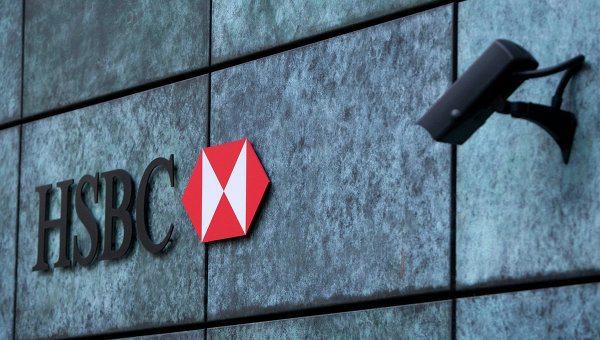WASHINGTON, December 11 - RAPSI. Crime doesn’t pay, the saying goes. But in the wake of global banking giant HSBC’s $1.9 billion settlement with US authorities announced Tuesday, the jury on money laundering is still out for some.
“It’s a high-level parking ticket,” Jack Blum, a former US Senate investigator specializing in uncovering international financial crimes, said of the record settlement.
The US Justice Department announced Tuesday that HSBC, Europe’s biggest bank, would pay the fine as part of a deferred-prosecution agreement to settle allegations that it transferred money through its US operations for Mexican drug cartels and nations deemed rogue states by Washington, including Iran.
“We accept responsibility for our past mistakes,” HSBC chief executive Stuart Gulliver said in a statement Tuesday. “We have said we are profoundly sorry for them, and we do so again.”
Justice Department officials on Tuesday portrayed the deal as a clear victory. Assistant US Attorney General Lanny Breuer said in a statement that HSBC is “paying a heavy price for its conduct.”
But critics said Tuesday that the penalty is tantamount to a slap on the wrist for the British-based bank, which notched $12.7 billion in pretax profits during the first six months of 2012.
It also sets a dangerous precedent in cracking down on corporate malfeasance and the flood of illicit cash flowing through the US financial system, said Jimmy Gurulé, a former undersecretary for enforcement at the US Treasury Department under President George W. Bush.
“The larger the bank, the less likely it is going to be punished,” Gurulé, a professor at Notre Dame Law School, told RIA Novosti.
The deal announced Tuesday was the latest in a string of settlements since 2009 between major banks and US authorities to halt investigations into charges of money laundering and violating US sanctions.
These financial institutions include Credit Suisse, Barclays, Lloyds and ING. On Monday, British bank Standard Chartered agreed to a $327 million settlement for violating US trade sanctions against Iran and Libya, among other nations.
But US authorities have opted not to prosecute company executives in any of these cases, sending a message that only serves to encourage similar behavior in the future, Gurulé said.
“It now appears we have a dual system of justice: one system for the general public, and a different set of laws for employees working at big banks,” he said.
The Justice Department did not respond to a request for comment Tuesday on why it has not pursued criminal cases against executives at banks that have admitted to transferring illicit money through the United States.
Securing convictions on money laundering charges can be difficult, time consuming and costly to the public, said Mark Galeotti, a prominent expert on transnational crime at New York University.
Prosecutors often prefer to agree to a settlement with a meaty fine rather than risk an investigation that could take years with no guarantee of success, he said. While major banks could certainly survive and thrive without laundering illegal money, individual bankers can reap large bonuses and major promotions by bringing in significant business with unseemly clients, Galeotti said, adding that the lack of prosecutions are a real problem.
“Frankly, the incentives are there to launder money,” he said.
The fine levied against HSBC does “send a message” to financial institutions, said Nikos Passas, a professor at Northeastern University’s School of Criminology and Criminal Justice in Boston.
“It says that authorities are looking into this regardless of the size and reputation of the bank in question,” Passas said.
The combination of the monetary fine and the reputational damage make it unlikely that major banks would consider legal repercussions for dealing with illegal clients an acceptable “cost of business,” Passas added.
Blum, the former US Senate investigator who works as a lawyer in Washington, was less sanguine about the impact these deferred-prosecution deals would have on banks’ behavior going forward.
“At some point, the Justice Department is going to have to show some spine,” Blum said.



